There are temples, and then there’s Tarapith. A place where the line between devotion and dread is thinner than the smoke curling up from the cremation ground nearby. Nestled in Birbhum, a few hours from Kolkata, Tarapith isn’t your usual peace-and-prayer kind of temple. This is a place where faith smells of camphor, mustard oil, and freshly cooked goat curry. Where the goddess is fierce, her eyes bloodshot, her tongue dripping — and her devotees, equally intense.
Welcome to the world of Ma Tara, the goddess who feeds her children with both love and fire, and the mahaprasad at Tarapith.
The Mother Who Fed Shiva
Let’s rewind a bit.
Once upon a cosmic meltdown, Lord Shiva was wandering around, devastated after Sati’s death. The guy was carrying her burnt body, losing his mind, when Ma Tara appeared. She scooped Shiva up like a baby and breastfed him — yes, you read that right — and brought him back to sanity. That’s Ma Tara for you. The mother who nurtures, heals, destroys, and doesn’t give a damn about fitting into your idea of godliness. Here in Tarapith, that story comes alive every single day.
The temple itself is small, crowded, and loud — much like any other temple in Bengal. But take a short walk behind it, and you’ll reach a world that feels straight out of an old Bengali horror film — the Maha Smashan, or the Great Cremation Ground. This is where Tantrics sit cross-legged amid skulls and ashes, where fires burn round the clock, and where the chants sound more like whispers between the living and the dead. It’s eerie, yes. But it’s also strangely magnetic. Because in Tarapith, life and death coexist — and no one’s apologizing for it.
Now, About That Mahaprasad at Tarapith
Here’s the part that makes Tarapith truly… Tarapith. While most temples in India serve vegetarian offerings — khichuri, fruits, laddoo and the like — Ma Tara gets fish and mutton. The temple’s Mahaprasad is a full-bodied goat curry, spiced the old Bengali way, thick with oil and faith. The meat comes from goats offered to the goddess — not as mindless sacrifice, but as a symbolic shedding of ego. Once offered, the meat is cooked in big black pots behind the temple and then served as Mahaprasad — sacred food that’s as much about belief as it is about flavour.
The devotees eat it sitting cross-legged, eyes closed, lips whispering “Jay Ma Tara.”
In the Tantrik way of looking at things, nothing in life is really “pure” or “impure.” Meat, fish, even wine — all of it can be sacred if offered with devotion. That’s why at places like Tarapith, the Mahaprasad is non-veg. It’s not about breaking rules or being shocking; it’s about acknowledging life in all its raw, messy glory. When a goat is offered to Ma Tara, it’s more than a ritual — it’s a way of letting go of ego, fear, and worldly attachment. Eating that prasad isn’t just filling your stomach, it’s partaking in a divine conversation, where the lines between the sacred and the profane blur, and even flesh and fire become a path to grace.
Faith, Fire, and Flesh
Tarapith doesn’t try to comfort you. It confronts you. It tells you that the divine isn’t always pretty. Sometimes, it’s wild, hungry, and painted in red. Sometimes, it asks for mutton instead of milk. And maybe that’s the point — to remind you that spirituality isn’t about running from life, it’s about accepting all of it: blood, bones, and blessings.
If You Ever Go
-
Where: Tarapith, Birbhum district, West Bengal (Nearest railhead: Rampurhat, 9 km away)When: October to March (when the weather won’t melt you)
- Where to stay: Hotel Sonar Bangla, Tarapith
-
Don’t Miss:
-
The early morning aarti — the temple smells like devotion and diesel smoke
-
A slow walk through the Maha Smashan — but don’t disturb the Tantrics
-
The Mahaprasad — rice, mutton curry, and an aftertaste of mystery
-
-
Pro Tip: Stay overnight. Tarapith at midnight is not for the faint-hearted — or maybe it’s exactly for them.
Some trivia for Tarapith Mahaprasad:
-
Bhog is what offered to the god/ goddess and prasad is what is received. Hence, we don’t get bhog; what we get is called Prasad. The folklore goes like, bhog at Tarapith Temple is not done, till there is no cremation – every single day. There are 3 prasads at the Tarapith temple. The first one is Sitalbhog (with fruits and sweets ). During lunch, there is the annabhog (with rice, pulao, etc, whatever is there in the pictures and in the evening, there is another Sitalbhog, with luchi, halwa, etc. There is another Khichuri bhog, which is done on special occasions only. Goat sacrifice is done only during Kalipuja and certain special tithis
Tarapith isn’t about finding peace — it’s about facing the divine chaos within and around you. It’s about a mother who once fed Shiva, a temple that feeds its devotees with mutton, and a faith that feeds on both darkness and light.
Because here, even the fire eats.
Do let us know if you have been to Tarapith, and please share your experience.
Bon appetit!!!
indrajit.lahiri@ymail.com
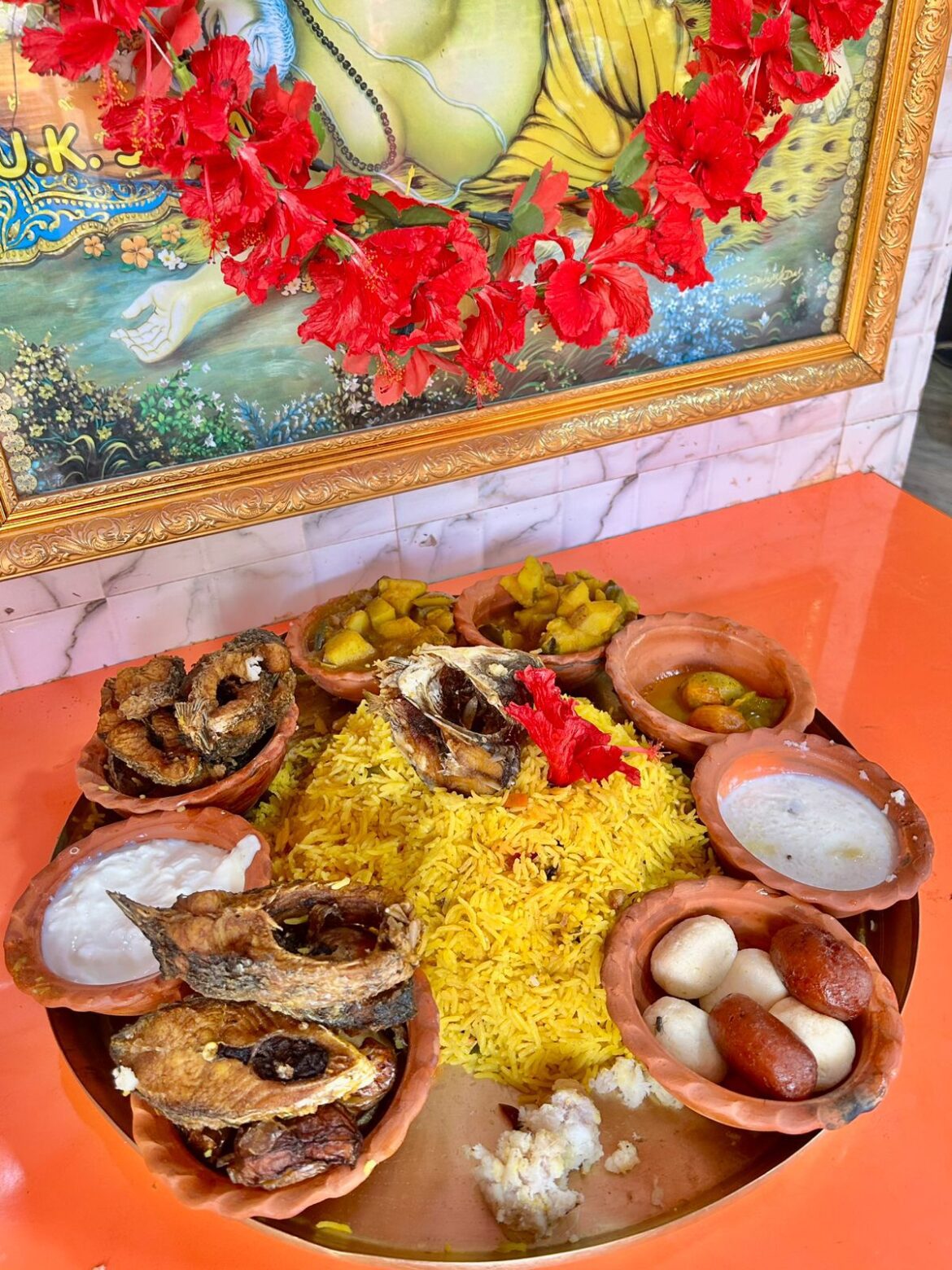
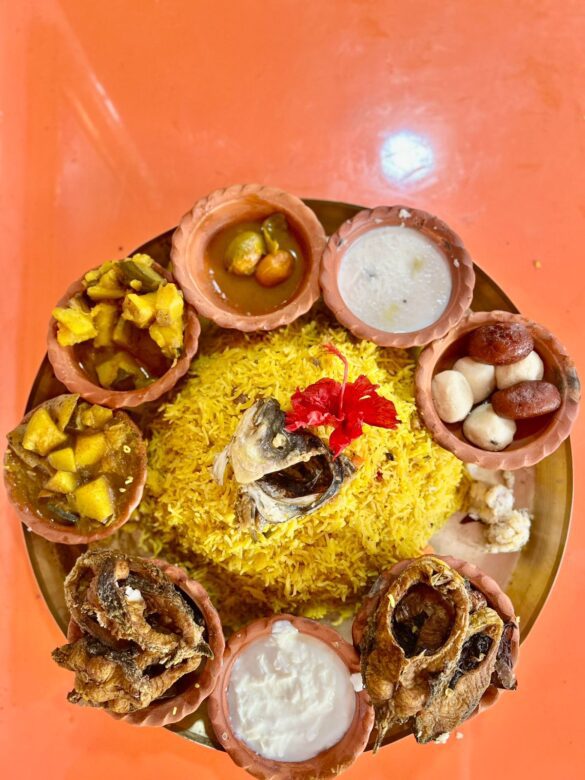
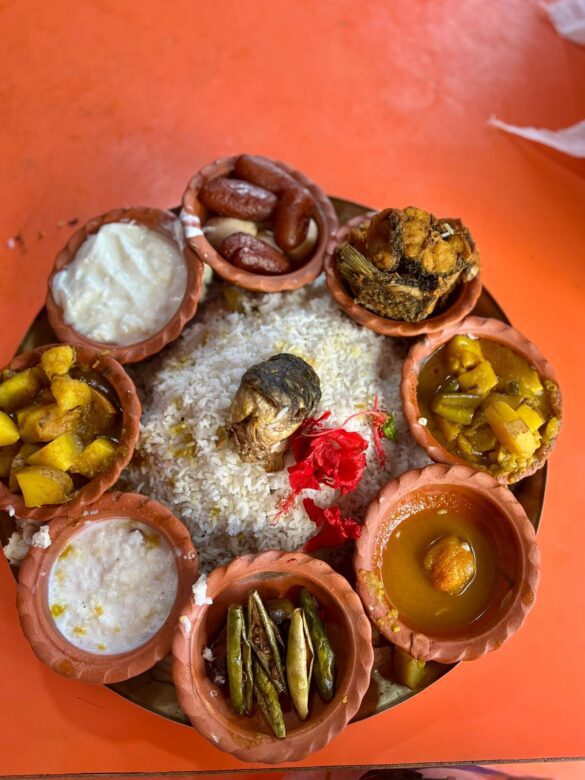
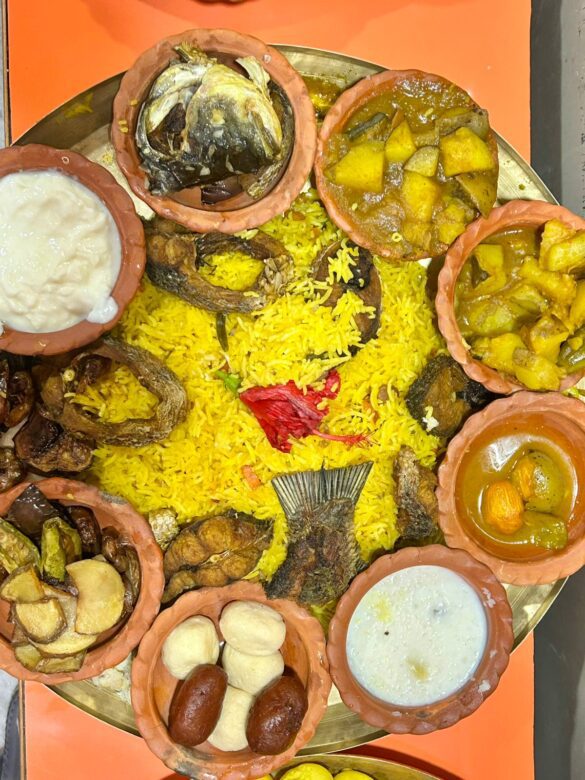
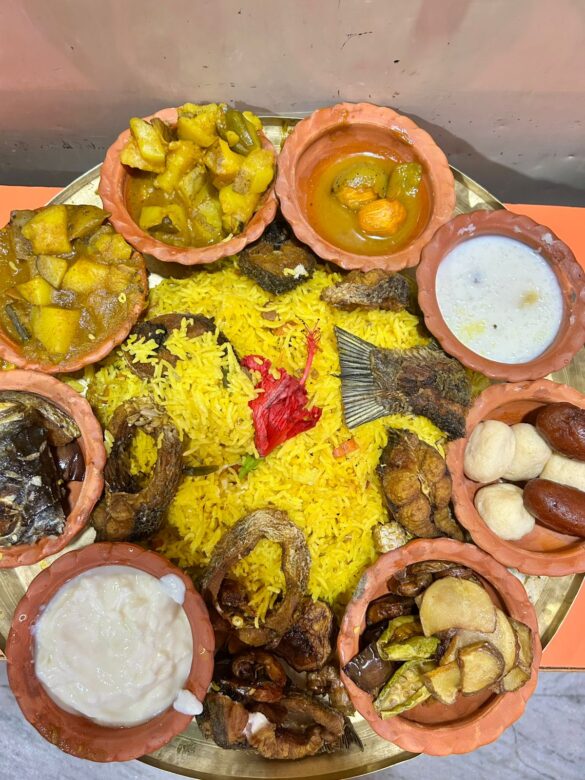
2 comments
The description of the devotion/dread balance at Tarapith is really striking. I found some interesting related cultural context on https://seed3d.ai while researching similar sites.
Haha, so Tarapith serves goat curry as prasad! Now *that*’s a divine dinner invitation I didn’t see coming. Who knew the path to grace involved more cholesterol than my usual Saturday lunch? Love the idea of shedding ego through goat, beats trying to meditate on a full stomach any day. And the article *definitely* doesn’t mention the *aftertaste* of mystery, but I suspect that’s part of the Tantrik charm. Thanks for the vivid description of a place that’s clearly not trying to win any cozy corners of the divine award. Bon appetit indeed!